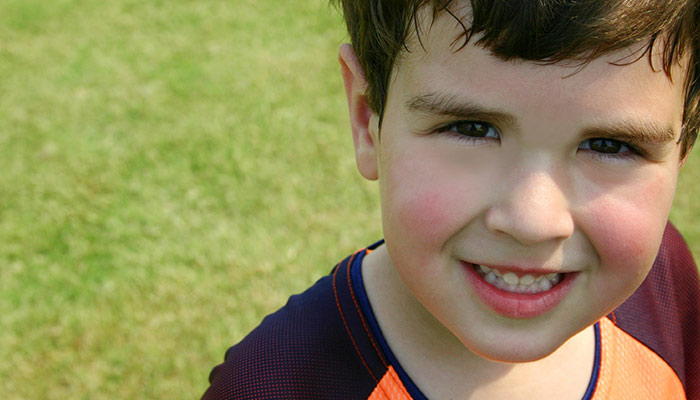While we believe that the books and resources recommended may be of value to you, keep in mind that these are suggestions only and you must do your own due diligence to determine whether the materials are appropriate and suitable for your use. PNC has no sponsorship or endorsement agreement with the authors or publishers of the materials listed.
ALL ABOUT ME

Why do We Sweat?
Children will explore the body’s natural cooling process.

Lesson Objective
Children will experiment with body temperature and differences in how children sweat.
Science
What You'll Need
- Temperature strips – 1 per child (available inexpensively at pharmacy and discount stores)
- Marker
- Dark colored tissue paper – cut in 1" × 6" strips – 1 per child
- Chart paper
What To Do
- Give each child a temperature strip, and instruct them to place it on their forehead.
- Record their temperatures on the chart.
- Tell the children that their bodies are dry (see Guiding Student Inquiry).
- Take the children outside (or indoors), and have them participate in active exercises for about 2–5 minutes or until they begin to sweat.
- Bring them back to the classroom, and give each child a strip of tissue paper.
- Have the children place the tissue paper on their forehead, and check to see if there is water.
- Give each child a temperature strip, and instruct them to place it on their forehead a second time.
- Record their temperatures on the chart.
- Compare and discuss the temperature differences.
Resources
Home School Resources
Home educators: use these printable lesson PDFs to teach this lesson to your home schoolers. They're available in English and Spanish.
Content Provided By
Common Core State Standards Initiative – These lessons are aligned with the Common Core State Standards ("CCSS"). The CCSS provide a consistent, clear understanding of the concepts and skills children are expected to learn and guide teachers to provide their students with opportunities to gain these important skills and foundational knowledge [1]. Visit the CCSS


